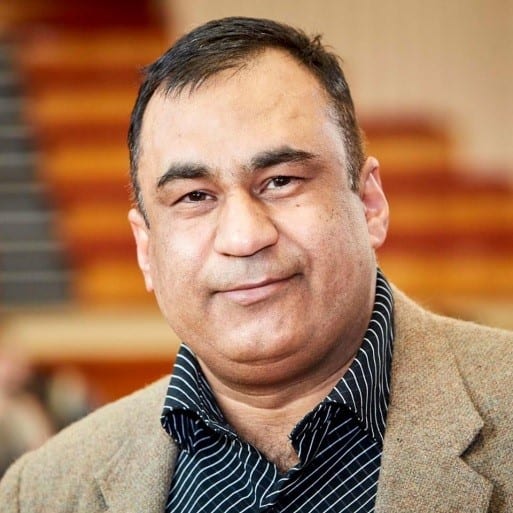Terrorism is an apparently inescapable phenomenon that affects us all. Despite severe human losses and suffering the world seems to be less cohesive in addressing this genuine threat that has put our future generations at risk. Our huge armies and their enormous firepower backed by up-to-the-minute intelligence networks appear to be incapable of halting the terrorists. This is down to the absence of a single strategy combined with the struggle by the global powers for hegemony and control of natural resources.
While terrorism should be abhorrent to everyone, it is clear that certain terrorism has been condoned and tolerated for decades; it often masquerades as states acting in “self-defence” or has a veneer of respectability as legitimate business. The British government under Margaret Thatcher, for example, secretly supplied deadly weapons to Saddam Hussein and then later pushed him into a conflict with Kuwait to benefit from the resultant “unparalleled opportunity” for arms deals.
Award winning journalist John Pilger’s documentary “Flying the Flag: Arming the World” disclosed that Britain has armed many brutal, corrupt and irresponsible governments in the world. We only have to think of Suharto and Indonesia, where “Britain colluded in one of the worst massacres of the century.”
Estimates put Britain in the top ten arms exporters in the world; the US is number one. If there is no conflict in the world, the military-industrial complex and all of its various manifestations will collapse, creating a massive financial hole in national economies. Whole regions are destroyed in politically-engineered conflicts in order to protect jobs in the major arms manufacturing countries. Somebody, somewhere, made a lot of money out of the genocides in Bosnia and Rwanda, and is still doing so today in Myanmar. Some major arms exporters are known to have no qualms about selling weapons and ammunition to both sides in a conflict; there is evidence to suggest that Israel is adept at this.
Read: How Israel benefitted from terrorism
Along with the moral considerations about arms sales must go the world’s response to high-profile terrorist incidents. When the criminals of Tehreek-e-Taliban Pakistan shot Malala Yousafzai for daring to write about her right to an education, it rightly became global headline news. Similar brutality enacted against children in Gaza, Kashmir, Syria, Afghanistan and Iraq (the list could go on) is less newsworthy, not least because it is so frequent. We seem to tolerate state terrorism or that committed by our international allies; the so-called “Game of Nations” has a lot to answer for.
We don’t even know the name of the anonymous Iraqi girl who wrote a blog [Baghdad burning] using the name Riverbend because she did not get media attention even though she was also campaigning for her right to education as well. In her case, she was resisting not the Taliban but a coalition led by the most powerful country in the world. State-sponsored terrorism has been exposed by documentaries such as “The War You Don’t See”; “Death in Gaza”; and “Suffering in Silence”. Men, women and children are suffering in the Middle East, Asia and Latin America, but this is, apparently, a price worth paying to protect big business.
Furthermore, powerful states — or states with powerful friends — are allowed to act with impunity. Some, indeed, also secretly fund, support and arm radical groups, jihadists and gangs to fulfil their political and economic ambitions. It should come as no surprise that the US and Britain have tolerated rebels in Libya and Syria who fuelled the rise of Daesh. Several right-wing extremist groups in Europe and other parts of the world have long been tolerated and ignored in the fight against global terrorism. The Taliban government in Afghanistan was awarded a million-dollar grant by George W Bush just months before 9/11 and the launch of his “war on terrorism” against, yes, the Taliban government in Afghanistan.
Read: Terrorism and intolerance are the product of the superpowers’ policies
Former US Vice President Joe Biden said, “The Taliban per se is not our enemy.” One of the accusations made by Saudi Arabia and the UAE against Qatar is “support for terrorism” by hosting representatives of the Taliban in Doha, even though this was done at the express request of the US government for mediation purposes. During the West’s undeclared war against the USSR in Afghanistan, the Taliban’s forerunners were funded and trained by the CIA. Now, sections of the US media claim that Russia is sponsoring the Taliban, with CNN saying that Moscow is actually arming the group.
Resist foreign occupation in Kashmir, Palestine or elsewhere, however, and you won’t be armed by the great powers, but declared to be a terrorist. In 1998, Pakistani-American scholar Eqbal Ahmad wrote Terrorism: Theirs and Ours which fits the present day scenario almost perfectly.
Good terrorism versus bad terrorism; tolerable terrorism versus intolerable terrorism; their terrorism versus our terrorism. This is the quandary that we face today, and the double standards applied by the West and Russia are at the core of the issue. Peace in the world will only come if we adopt a policy of zero tolerance of any and all terrorism, regardless of the perpetrators.
The views expressed in this article belong to the author and do not necessarily reflect the editorial policy of Middle East Monitor.


![Activists come together to protest against terrorism [Ben Sutherland/Flickr]](https://i0.wp.com/www.middleeastmonitor.com/wp-content/uploads/2017/10/2002_5_6-terrorism-protest.png?fit=1200%2C800&ssl=1)









